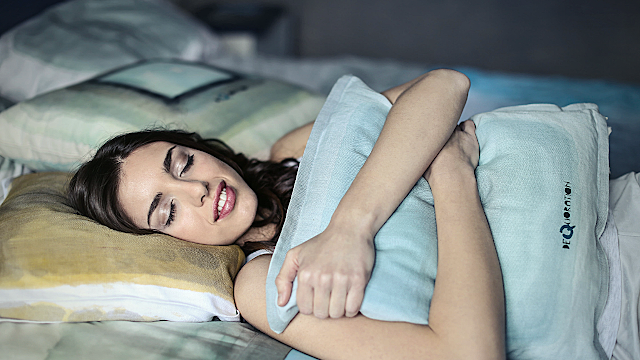You should Take at least 8 hours of sleep per day. There were completely different norms previously, but they have been destroyed by the results of recent research in this area. There are still some misconceptions about sleep, in this article, we will look at 12 of them.
Myth 1: Sleep is just for rest
Almost everyone can tell you that a person needs sleep to rest. Actually, that's not true. There are people in the world who do not sleep with a clear mind and don't die of exhaustion. In fact, during sleep, a person gets a chance to rest. But this is not the main function of this state.
In fact, a person's consciousness does not rest at all during sleep. Your brain also works at night. Maybe more. In order to optimize the information received in a day, mammals, birds, and even reptiles must shut down their thinking for some time. This is very important for the survival process. For this purpose, evolution has come with protectionist policies, such as dreams. The basic flow of information received per day during sleep is delivered to the right cells. And the information goes from short-term to permanent memory.
Myth 2: Sleeping until midnight is even more valuable
Of course, all this depends on what your biological clock looks like. Forcing yourself to sleep at the wrong time violates your body's natural rhythm.
Myth 3: Sleep pills can help you sleep better
Sleeping pills can help you fall asleep, but this kind of sleep is lack of quality. This approach is only appropriate when absolutely necessary. In all other situations, try to avoid the use of these drugs designed to combat insomnia.
Myth 4: Don't allow yourself to fall asleep during the day
Such breaks have the potential to cause problems only for those who suffer from insomnia. In all other cases, a short nap is very valuable for intellectual work.
Myth 5: Drowsiness is a sign of strength decline
In fact, drowsiness is not a sign of poor health, laziness, or lack of enjoyment. However, if you need some rest, try taking a nap. This will help boost your productivity dramatically in the second half of the day.
Myth 6: People who sleep less will live longer
In early 2002, studies concluded that short-term sleep directly contributes to one's longevity. Subsequent research showed that the number of natural hours required to be followed. It is important to realize that even long-term dreams may not be good for your health.
Myth 7: The alarm clock helps control your sleep rhythm
The alarm clock helps you stick to a consistent plan and routine. But this does not create a healthy life rhythm for your body. The only right and tested way to achieve a healthy sleep rhythm are to sleep only when you are really tired. And wake up without external interference.
Myth 8: Work at night is harmful
It's not about night work, it's about constant changes in your body's biorhythm. The problem is that a person does not have to stay awake at night. It's about balance. If you are awake at night, you should sleep the next day. In turn, many overnight workers try to find more free time. And it completely separates the waking period.
Myth 9: It is useful to fall asleep at the same time every day
Most experts recommend sleeping at the same time every day. In fact, simple rhythm is the recommended chronotherapy for many problems with daily rhythms. However, for the number of people suffering from various diseases, it is impossible and one can try to do so under stress and insomnia, which is certainly not good.
Myth 10: Sleep requires silence and darkness
Often, doctors make these recommendations for people with insomnia.
Silence and darkness can actually help the fall process. They contribute to the protection of sleep and protect against the effects of external stimuli. However, this is not so important. An important factor in helping you sleep is good health and natural daily rhythm. According to natural rhythms, people who go to bed usually sleep better in strong sunlight. They exhibit excellent tolerance for various external sounds.
Myth 11: Magnesium, folic acid, and other medications can help you sleep better
They need nutrients to stay healthy and get good sleep. However, their exact numbers do not play an important role in solving sleep problems. Vitamins can help if you are deficient in one of them, but most of the sleep problems in society come from neglecting your daily rhythm. Eat and stick to your standard diet. This is enough.
Myth 12: It is better to wake up with the sun
In fact, it is advisable to wake up when deciding that your body is already resting. If you are not accustomed to getting up at 4 am, trying to do this with the help of an alarm clock can be frustrating.
12 Things about Sleeping you didn't know
 Reviewed by Durgajit Deka Baruah
on
May 13, 2020
Rating:
Reviewed by Durgajit Deka Baruah
on
May 13, 2020
Rating:
 Reviewed by Durgajit Deka Baruah
on
May 13, 2020
Rating:
Reviewed by Durgajit Deka Baruah
on
May 13, 2020
Rating:





This information is meaningful and magnificent which you have shared here about the-Online sleeping tablets. I am impressed by the details that you have shared in this post and It reveals how nicely you understand this subject. I would like to thanks for sharing this article here.Online sleeping tablets UK
ReplyDelete